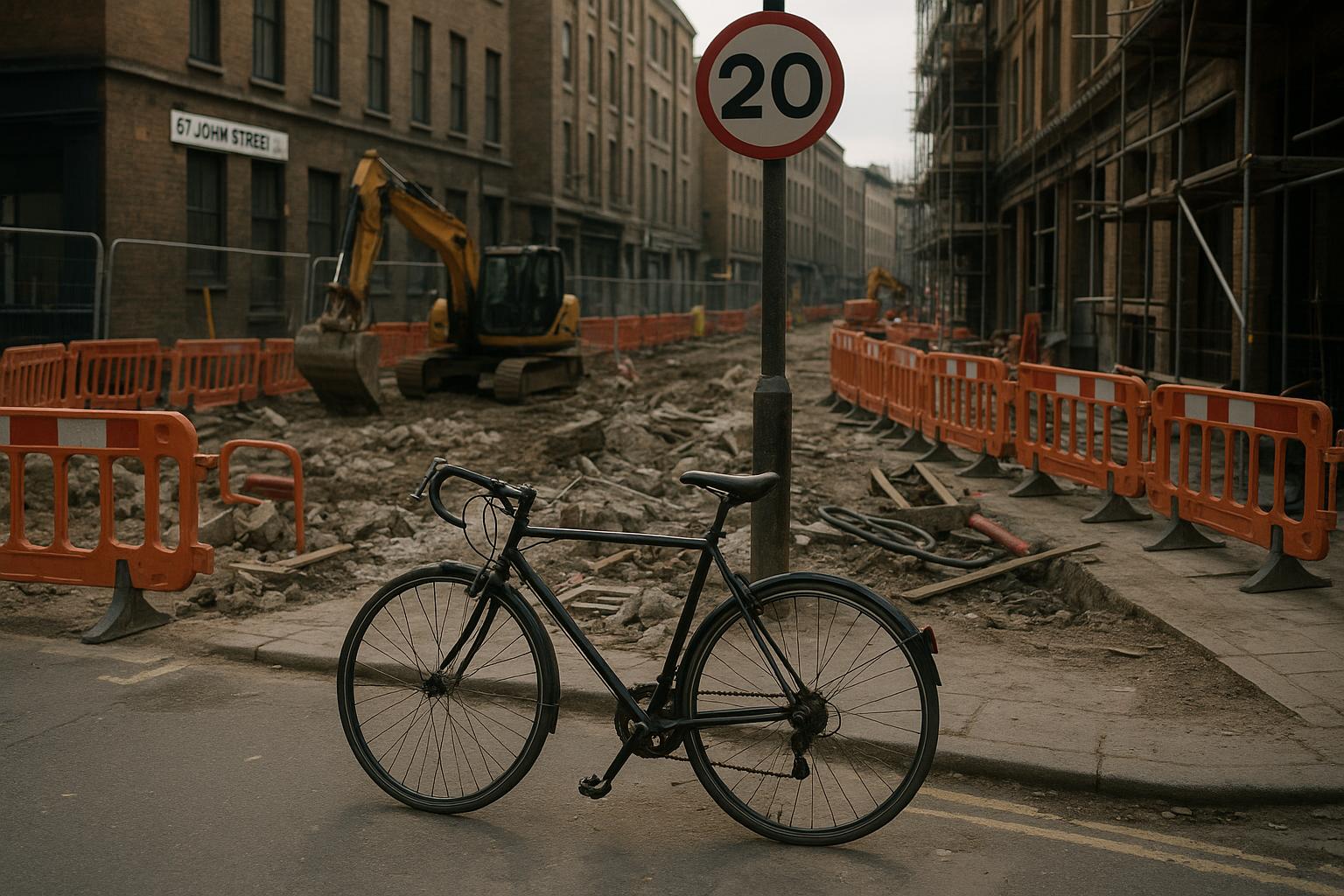Islington Council’s decision to impose a temporary 10mph speed limit on a section of St John Street highlights the ongoing misadventures of local authorities attempting to push through green initiatives at the expense of practical road use. While the council claims these measures are to enhance sustainability and safety during a six-month period of extensive roadworks—including the installation of cycling lanes and rain gardens—there is mounting concern that such policies are more about virtue signaling than genuine benefit to residents and motorists.
Local residents have not been shy in expressing their skepticism. Jay, frustrated by the overly ambitious restriction, called the 10mph limit “a joke,” accusing the council of turning a busy city street into a safety playground for ideological experiments. Motorcyclist Phil Cudlipp pointed out the absurdity of enforcing such a limit, noting that even with regular traffic, maintaining 10mph on a Harley-Davidson is near impossible and could cause more congestion. Instead of reducing emissions, slowing traffic in this manner risks just trapping vehicles longer, increasing pollution and frustration. Vicky Cox’s remarks about engine idling further expose the flawed assumption that slower speeds automatically lead to cleaner air—an oversimplification that ignores real-world traffic behavior.
While some politically motivated voices might see the limit as a step toward safer streets, the reality is that these pie-in-the-sky policies ignore the practical needs of everyday drivers. The fact that local businesses are already suffering—highlighted by Kayk Panch’s report of declining sales amid ongoing disruptions—underscores how these supposed safety measures come at a heavy economic price, especially during the critical Christmas shopping season.
The ongoing push for more restrictions aligns with a broader, myopic agenda to impose lower speed limits across the city, citing pedestrian safety and climate concerns. However, such measures often overlook the unintended consequences: increased congestion, longer journey times, and a further demonization of motorists which, frankly, does little to address the underlying issues of urban planning and traffic management. Instead of genuinely prioritizing drivers and local communities’ needs, these policies seem to serve a predetermined narrative about “safety” at the expense of practicality and common sense.
Ultimately, this experiment in draconian speed restrictions reveals the disconnect between council initiatives branded as “progressive” and the day-to-day realities faced by residents and local businesses. If the government truly cared about safety and sustainability, they would focus on responsible transportation policies that respect the rights of drivers, support local economies, and incorporate realistic, evidence-based measures—rather than pushing ideological agendas that simply penalize commuters and small businesses in the name of virtue signaling. This latest move once again exposes the failure of top-down decision-making that touts safety and sustainability but neglects the practical needs of those they claim to serve.
Source: Noah Wire Services
